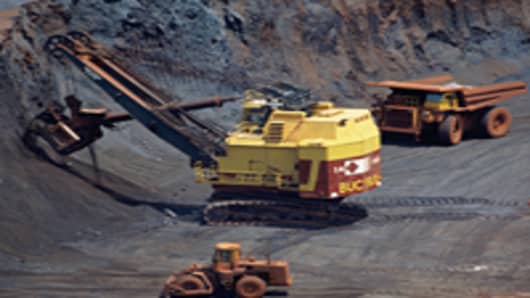China's second quarter growth data, which came in line with market forecasts, may have brought relief to investors who were expecting the worst, but one analyst says the data will do nothing to reverse the downtrend in the commodities sector.
Speaking to CNBC before the release of the Chinese data, Warren Gilman, Chairman and CEO of CEF Holdings, says he thinks it’s a case of “bad news, bad news” for commodities, regardless of China's GDP data, and that the sector will have more room to fall.
“If the number that pops up later on today is below 7.8 percent, then it’s a case of the sky is falling and commodities are going to get hit,” Gilman said on CNBC Asia’s “Squawk Box”. “If the number comes above 7.8, then it’s a case of the sky is not falling enough and commodities are going to get hit, because it will look as if Chinese stimulus will still be a ways off. So either way you look at it, it’s the proverbial case of the glass is half empty this afternoon.” (Watch the full video here.)
China's economy grew 7.6 percent in the April-June quarter from a year earlier, the National Bureau of Statistics said on Friday, the slowest pace since the January-March quarter of 2009.
China is the world’s biggest consumer of metals such as copper and iron ore and most grains, and the health of its economy is widely seen as a gauge of commodities prices.
The country’s imports of most major commodities had fallen in June from May's high levels. Copper imports for example fell 17.5 percent from May to 346,233 metric tons, due to a decline in the appetite for manufactured goods as the global economy softens. Iron ore imports fell more quickly than expected, dropping 8.7 percent to 58.31 million metric tons, their second lowest monthly level this year.
Demand remains tepid and traders are expecting a further fall in bookings over July, with steel prices not expected to recover.
— By CNBC’s Jean Chua.


